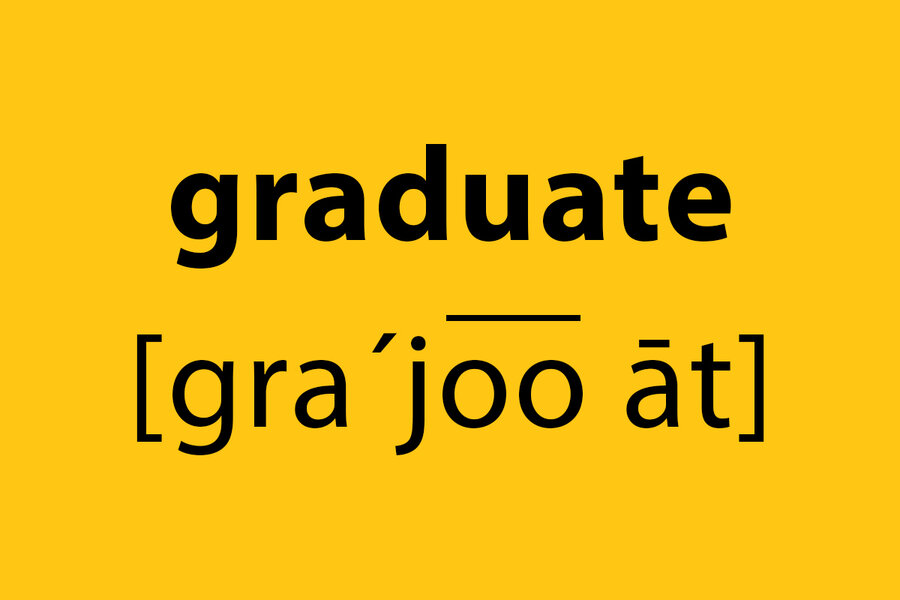It’s that time of year when students dress up in gowns, don odd-looking hats that blow off in the slightest breeze, and listen to long speeches in uncomfortable chairs. Yes, it’s graduation season, and many of the words that come up around this time have intriguing backstories.
The idea of graduation itself is interesting. It derives from the Latin noun gradus (a “step” or “stage”). Graduate also means “to mark with degrees of measurement,” per Merriam-Webster. Students use graduated cylinders – glass or plastic tubes with scales printed on the side – to measure the volumes of liquids in chemistry class. Likewise, graduation is a way of measuring students’ progress.
More frequently, graduation connotes the completion of a stage of education, or of life more generally. For example, parents might relate that their toddler has “graduated” from wearing diapers. When you graduate college (or graduate from college or were graduated from college – all are arguably correct, though the last is British), you move on to another phase of life, whether that’s the working world or more school. Many traditions have grown up around this transition, including one that mandates the wearing of a flat, square hat: the mortarboard.
Graduates have been wearing these hats for centuries, long before they were referred to this way. They seem to have evolved in the Middle Ages from the biretta, a stiff three- or four-cornered hat worn by Roman Catholic clergy, which looks something like a lunchbox. In the past, they were required for nearly all college occasions, from lectures to dinners. Along with long academic robes, these hats distinguished “town” from “gown.”
In the 16th century they were simply square caps or catercaps, cater being a spelling of quatre (the numeral “four” in French). They became mortarboards in the 19th century, because they really do resemble the thin square boards, like painters’ palettes, that bricklayers use to hold mortar when they move around.
This term first appeared in an 1854 novel in which a decidedly “town” fellow with a thick cockney accent ends up wearing such a cap and declares, “I don’t mind this ’ere mortar-board.” The university students think this is a great lark, but object to what they call the “offensive” name he gives their headgear – mortarboard is vulgar, in their opinion. The term probably spread, then, as a bit of a joke, self-depreciatory or otherwise. It punctures the balloon of academic gravitas and the ranking and distinguishing implied in graduation.
Don’t take yourself too seriously, mortarboard suggests. You’ve got a tool on your head, and it’s upside down.


No comments:
Post a Comment